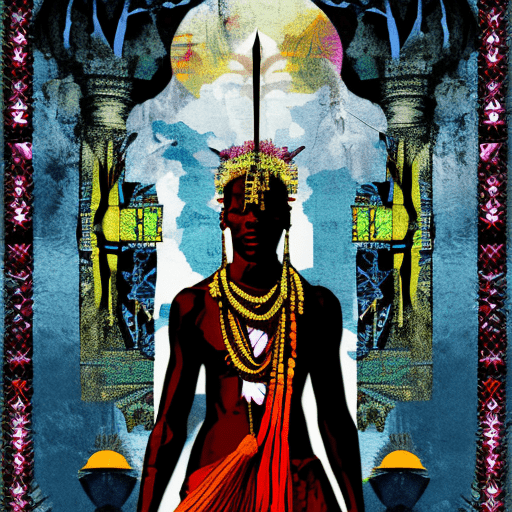One-line Summary:
The Poisonwood Bible is a captivating novel that follows the lives of the Price family as they navigate the complexities of colonialism, religion, and personal growth in the Belgian Congo.
The Price Family’s Journey to the Congo
The Poisonwood Bible, written by Barbara Kingsolver, takes readers on a tumultuous journey with the Price family as they embark on a mission trip to the Belgian Congo in the late 1950s. Led by the zealous and stubborn Baptist preacher, Nathan Price, the family leaves their comfortable life in Georgia to spread the word of God in a foreign land.
The four Price daughters, Rachel, Leah, Adah, and Ruth May, each bring their unique perspectives and voices to the narrative, providing a multifaceted exploration of the family’s experiences. Through their eyes, readers witness the clash of cultures, the harsh realities of colonialism, and the devastating consequences of blind faith.
Colonialism and Cultural Clash
As the Price family settles into the village of Kilanga, they quickly realize the vast cultural differences between themselves and the Congolese people. Nathan Price’s rigid and uncompromising approach to Christianity clashes with the villagers’ traditional beliefs and practices. The family’s ignorance and inability to understand the local customs often lead to misunderstandings and conflicts.
The novel also delves into the broader context of colonialism, highlighting the exploitative nature of European powers in Africa. The Congolese people suffer under the oppressive rule of the Belgian government, enduring forced labor, violence, and economic exploitation. Kingsolver skillfully weaves these historical realities into the narrative, shedding light on the devastating consequences of imperialism.
Personal Growth and Redemption
As the story unfolds, each of the Price daughters undergoes a personal journey of growth and self-discovery. Rachel, the eldest and most self-centered, gradually learns to see beyond her own desires and develops a sense of empathy. Leah, the tomboyish and adventurous daughter, becomes deeply involved in the political turmoil of the Congo and questions her father’s beliefs. Adah, who suffers from a physical disability and is initially seen as an outsider, finds solace in her intellect and eventually becomes a voice of reason within the family. Ruth May, the youngest and most innocent, symbolizes the loss of innocence and the tragic consequences of the family’s presence in the Congo.
Through their individual narratives, Kingsolver explores themes of redemption, forgiveness, and the power of personal agency. Each daughter, in her own way, seeks to reconcile with the past and find her own path forward.
Key Takeaways:
- Colonialism and its devastating impact on African nations.
- The clash between Western religious beliefs and traditional African customs.
- The importance of empathy and understanding in bridging cultural divides.
- The power of personal growth and redemption in the face of adversity.
“The things that happened could only have happened during a slow dance. Because I had to pay attention to see them. Look away, and a year was gone.” – Barbara Kingsolver, The Poisonwood Bible
In conclusion, The Poisonwood Bible is a thought-provoking and emotionally charged novel that explores the complexities of colonialism, religion, and personal growth. Through the voices of the Price daughters, readers are confronted with the harsh realities of cultural clash and the profound impact of historical events. Kingsolver’s masterful storytelling and rich character development make this novel a compelling read that leaves a lasting impression.












